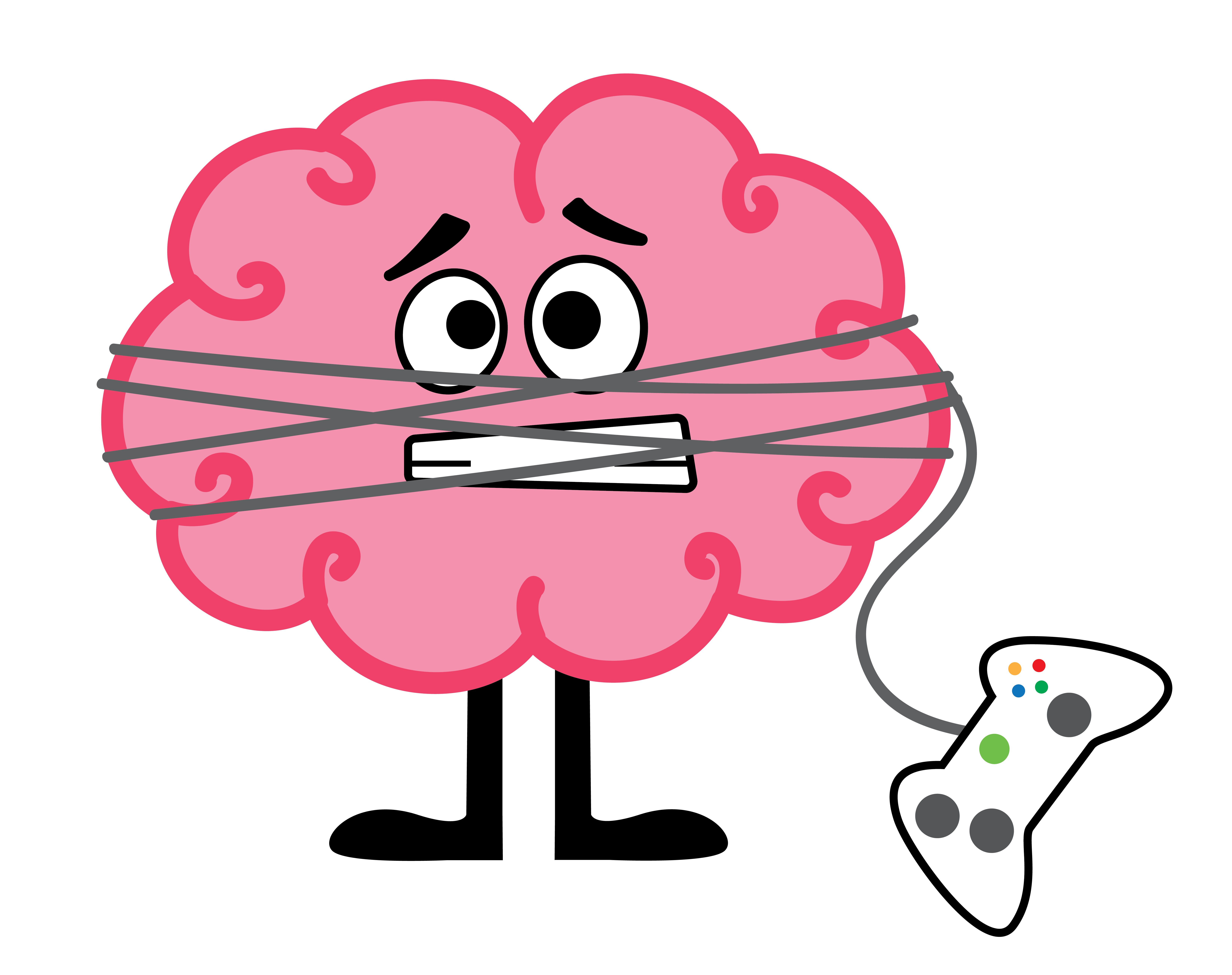We have all known at least one person who is obsessed with video games. Perhaps we even are that person. Thanks to a new study, the effects of excessive and compulsive gaming on the brain are now beginning to be understood.
The University of Utah School of Medicine and the Chung-Ang University, located in South Korea, teamed up to explore how a gamer’s brain is wired.

Graphic by Maddy VanOrman
Jeffrey Anderson, professor of neuroradiology at U of U School of Medicine, was the lead author on the study. The study found that there is hyperconnectivity between certain areas of the brain and while some of the connections are found to be beneficial, some are not, such as being easily distracted and having poor impulse control.
The findings of the study were published online in “Addiction Biology” last December.
Adolescent boys ages 10 to 19, with and without Internet Gaming Disorder, were used in the study. Internet Gaming Disorder is a condition in which a person is so obsessed with video games that they will opt to play a video game over doing almost anything else, even eating or sleeping.
The participants were screened in South Korea because video games are played even more frequently there than in the United States.
Doug Hyun Han, first author on the study and a professor at both Universities, said that this study is the “largest, most comprehensive investigation of differences in the brain of compulsive video game players to date.”
A total of 106 boys with Internet Gaming Disorder had their brains imaged and those scans were then compared to those of 80 boys who did not have the disorder. The researchers observed activity in 25 pairs of brain regions. The more those two regions lit up at the same time, the stronger the connection was believed to be.
“Hyperconnectivity between these brain networks could lead to a more robust ability to direct attention toward targets, and to recognize novel information in the environment,” Anderson said. “The changes could essentially help someone to think more efficiently.”
However, researchers also found that the hyperconnectivity between the dorsolateral prefrontal cortex and the temporoparietal junction could increase distractibility. Anderson said that this is often seen in people who have conditions like Down syndrome, autism and schizophrenia.
Researchers still do not know whether compulsive gaming is the cause of the brain to be wired differently or if people with brains that are wired differently are more likely to be attracted to playing video games.
The researchers hope that with further research they will be able to effectively identify and treat those with addictions to video gaming.







